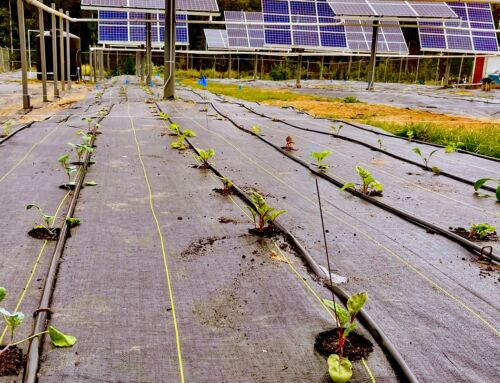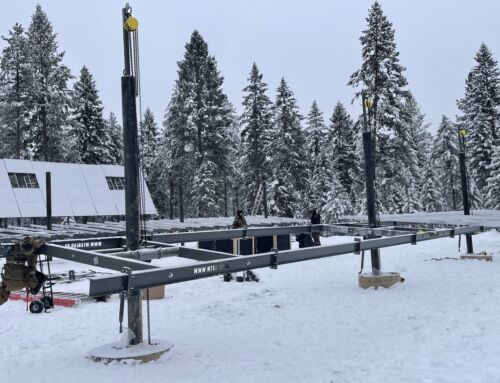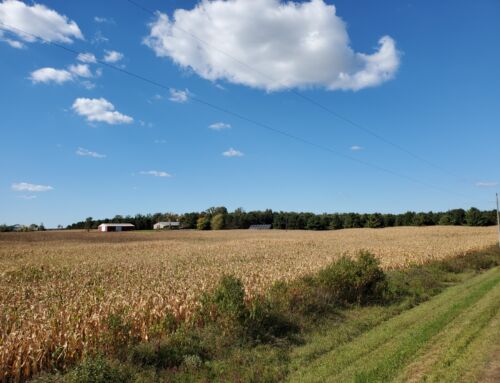Twende Solar was founded in 2015 by a group of individuals from Elemental Energy. The non-profit’s name emerged from the Swahili word, which means “let’s go,” upon accomplishing its first project in Tanzania. The Swahili phrase encapsulates the organization’s mission—and serves as a reminder of its first project in Tanzania.
Based in Portland, Oregon, Twende Solar has provided renewable energy access for underserved communities across the globe. The non-profit has primarily focused on international projects, but has completed a few installations in the United States, such as the one at Portland Rescue Mission.
Twende Solar’s next project is currently in the works. The project involves a coffee farm in Puerto Rico. This island is prone to hurricanes, earthquakes, and other natural disasters, and as evidenced by Hurricane Maria, extreme weather can decimate the island and threaten the livelihoods of its vulnerable communities. Natural disasters pose immediate threats, prohibiting Puerto Rican residents, like many living throughout the Caribbean region, from accessing food and energy.
Robin Swanhuyser, the Executive Director of Twende Solar, is organizing and coordinating the installation in Puerto Rico. As the project manager, Swanhusyer is leading the non-profit in its partnership with the National Renewable Energy Laboratory (NREL). The principal investigators from NREL are eager to build Puerto Rico’s first experimental agrivoltaic farm—and the world’s first solar panel shade grown coffee study.
The project is part of the InSPIRE Research Study: Innovative Solar Practices Integrated with Rural Economies and Ecosystems. The U.S. Department of Energy (DOE) has supported agrivoltaic research since InSPIRE launched, which is the most comprehensive coordinated research effort on agrivoltaics in the United States.
The proposal process leading up to the forthcoming installation has required a number of components, such as: organizational assistance, financial support, capable installers, construction equipment, and a willing coffee farmer. Thankfully, many of those pieces came together swiftly.
Being the first of its kind, the project has the potential to increase the readiness and availability of renewable energy in Puerto Rico. This project has the opportunity to convey the resilience of renewable energy sources, specifically agrivoltaic design and systems, in areas prone to threats of extreme weather.
Even more, this project will have numerous benefits for the farmer. Miguel Berdiel and Hacienda Berdiel Torres operate their farm in the mountains of Adjuntas. The farm has a 3,000 foot elevation, which provides prime coffee growing soil. Berdiel also grows oranges, mandarins, limes, plantains, bananas, and other hydroponic vegetables and herbs.
The system itself will be a 7.8 kW array – 6 pole mounts with (4) 325W modules on each. This will be paired with 16 kwh of battery storage with batteries donated by Blue Planet Energy. According to Jamie Blum, Sales Engineer at MT Solar, the project proved to be a unique design challenge. In order to accommodate coffee farming beneath the arrays while also needing to withstand hurricane-force winds, the design process went through several different iterations to find a balance of sun and shade.
Blum explains, “The final design puts the modules 10 feet off the ground in arrays of four modules. Our mounts are uniquely capable of this high-ground clearance and wind resistance. We also added an extra rail to the racking to provide additional stability to the modules in high winds.”
The final product, with its steel I-beams and additional rail for structural integrity, will be able to withstand 200 mph wind speeds. The ground clearance allows coffee plants to grow, making it a functional way for Berdiel’s farmers to work underneath the solar panels.
In particular, the solar installation will be used to power a hydroponic food greenhouse facility. This facility has been out of operation for over three years due to the high energy costs and inconsistent electricity.
On a macro level, this project can demonstrate how agrivoltaics can revolutionize access to energy in Puerto Rico; and on a micro level, this project has immense benefits for the Berdiel farm. Berdiel will be able to achieve energy independence with this form of renewable energy while also experiencing increased agricultural production and revenue.
After the installation is complete, NREL will study the system and the coffee over a two-year period. Researchers aim to understand the environmental impacts on coffee, and on the island as a whole. By installing an agrivoltaic system, project partners are eager to see the benefits of shade-grown coffee, hurricane resistance, and mixed-use function for agricultural use.
If the project is successful, it will emphasize the standardization of agrivoltaic systems for Puerto Rico and other Caribbean islands.
Stay tuned for more information following installation of the solar panels! MT Solar is excited to have been part of Twende Solar’s work in Puerto Rico.





